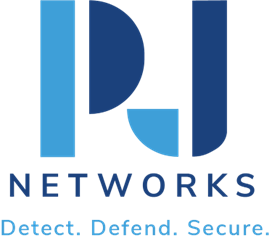Opening the Door to Fortinet Rugged Firewall Certifications and Standards
Been at this a long time. Sometimes I wonder what it must be like to be so far along that there is no longer any challenge in staring at network diagrams, dealing with mux systems, ensuring voice and data didn’t disrupt each other across the public switched telephone network (PSTN). Fast forward thirty years — and we’re now living in a world of zero-trust, AI-powered security claims (which, with little exception, are just marketing), and compliance frameworks.
But there are some things that remain constant. Like firewalls. Okay, sure, they’ve evolved — stateful inspection, intrusion prevention, deep packet inspection — but over what period of innovation have they been the gatekeepers between safe and unsafe? And in big, mean, dirty industrial environments where downtime is a nightmare and security is non-negotiable, Fortinet’s rugged firewalls have certifications that actually mean something.
So, let’s discuss those certifications.
Quick Take
- Fortinet makes tough-as-nails firewalls that are rated for extreme environments, such as factories, power plants and remote locations.
- They meet rigorous industry standards for reliability, cybersecurity, and industrial compliance.
- These certifications represent more than just stickers — They have a tangible impact on security and regulatory compliance in the real world.
- If you’re in banking, critical infrastructure, industrial operations, listen up.
Why Proving in Fortinet Certifications Is a Must?
Not every firewall is designed the same. Because in a data center you have temperature, humidity and power under your control. Out in the field? It could be hot, cold, dusty — or worse, physically tampered. Fortinet’s ruggedized firewalls are built for these conditions, but the real trust comes from their certifications:
1. Scope: Outcome: IEC 61850 Test: IEEE 1613 & IEC 61850-3 (INDUSTRIAL ENVIRONMENTS)
These aren’t arbitrary—but represent that these firewalls can operate within the electrical noise and extreme conditions presented by power substation environments. You don’t need to have your firewall crash due to an electromagnetic interference, in which case you’ll have problems. I have witnessed instances in critical infrastructure projects where no non-IT rated gear could deal with the environment.
2. NEMA TS-2 (Traffic Control Systems)
So how do traffic control networks remain secure? This specification enables Fortinet rugged firewalls to not just exist in traffic control cabinets, but to excel. It’s about being reliable in areas where the lack of a network connection could lead to citywide chaos.
3. January 2023 — ATEX & IECEx (Hazardous Locations)
Oil refineries. Chemical plants. Whereas there are flammable gases or materials. Those certifications are what guarantee you the firewall isn’t going to be the cause of an explosion (and believe me when I say that peace of mind is worth whatever extra you might pay).
4. Common Criteria (CC) & FIPS 140-2 (Government-Grade Security)
This is where it gets real—CC and FIPS 140-2 mean these firewalls meet government and military security standards. Having worked with finance firms to implement tighter, more rigorous zero-trust models, I know if your firewall isn’t also FIPS-compliant, then it shouldn’t be anywhere near those sensitive, high-dollar financial networks. Period.
5. UL 62368-1 & IP Rating (Resistance to Water & Dust)
Drop it, shock it, pour water on it — it’s meant to hold up. And with an appropriate IP rating (Ingress Protection) it’ll block dust and repel water. Ideal for all field deployments.
Permanent Solutions To Ensure Compliance With Automated Outage Management
- These aren’t optional certifications — they’re mandatory in many regulations (NERC CIP, anyone?
- A power grid or water treatment plant that goes down is not just a nuisance — it’s a catastrophe.
- Cyber-physical security increasingly lures attackers — so firewall integrity is important.
Designed for Banks & Financial Institutions
- Zero-trust is only as strong as your weakest link — I’ve spent enough time in banking to know that compliance drives security initiatives.
- CC & FIPS compliance keep your infrastructure resilient in the face of regulatory scrutiny.
- Trade secrets, financial transactions, client records—all behind the right firewall.
For IIoT & Manufacturing
- This is not news, as we all know IoT devices are becoming infamous for being hacked. If your firewall is not controlling that traffic, you’re already vulnerable.
- Adhering to industry regulations reduces risk exposure and avoids compliance headaches.
And don’t get me started on AI-driven security solutions that brag about being able to autonomously react to threats when posed with them—I’ll take properly certified network security hardware any day over a black-box algorithm.
Final Thoughts
Firewalls are still foundational. Fortinet’s rugged firewalls? Solid. But the certifications are not only for show—they indicate what environments these firewalls are specifically designed for.
I’ve been in this industry for decades and have watched security evolve from simple ACLs on routers to multi-layered zero-trust architectures. And I know firsthand what happens when companies don’t prioritize firewall security. You can spend as much as you want on innovative security tools, but if your perimeter defenses are not designed for your environment, you are playing a dangerous game.
So the next time you’re evaluating firewalls for industrial, financial, or critical infrastructure use—look beyond just the spec sheet. Review the certifications and understand what they mean and make sure that you are not deploying a firewall that is the wrong fit for the job in the first place. Don’t get me wrong, I have seen what happens when people take short cuts and it never turns out good.
